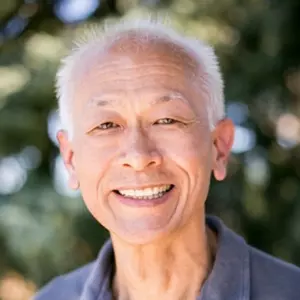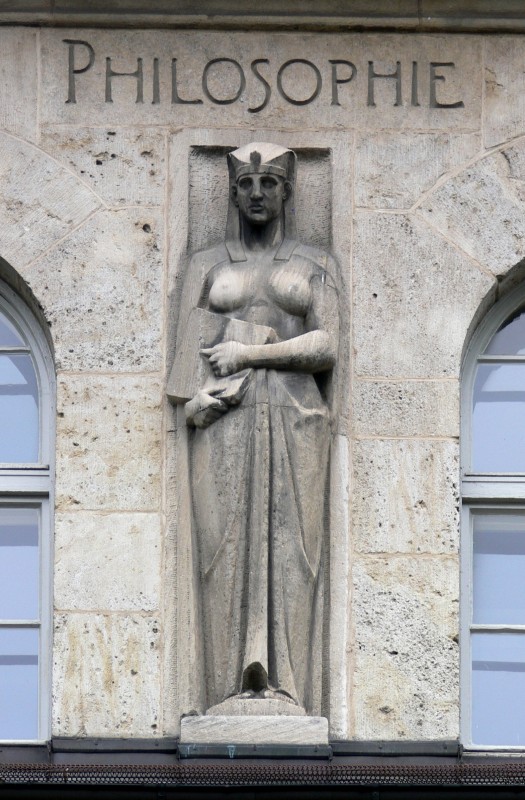Everyone is welcome to the free lectures; Learn about identity and the brain, and moral relativism: 5:30 p.m. Friday, Feb. 12, and 5:30 p.m. Saturday, Feb. 13
TACOMA, Wash. – Could new neural technologies that are being developed to study and treat the brain affect someone’s identity and ability to direct their own lives? Should we, as ethical beings, give a higher value to community relationships or to individual autonomy?
These are two questions that philosophers Sara Goering, from University of Washington, and David Wong, from Duke University, will explore in their keynote addresses for the Fourth Puget Sound Undergraduate Philosophy Conference, Feb. 12–13.
On Friday, Feb. 12, at 5:30 p.m., Goering will speak about “Stimulating the Self: Neural Technologies and Agency.” On Saturday, Feb. 13, at 5:30 p.m., Wong will address the topic “Relativism and Ambivalence Between Relationship and Autonomy.”
Everyone is welcome to the two free talks in the Tahoma Room of Commencement Hall on campus. The two-day conference, including 12 other talks in Murray Board Room, Wheelock Student Center, also is free and open to the public. More information and a campus map are available below.
“The Puget Sound Undergraduate Philosophy Conference provides for two is also and fun days on the Puget Sound campus,” said Ariela Tubert, conference co-organizer and chair of the Department of Philosophy.
“A lot of student effort goes into preparing for the conference, and I have seen some of the students’ best work on display in past conferences. We have two impressive keynote speakers, who will discuss some central and timely issues in philosophy. It is a great honor to have them be part of our conference.”
The 12 student presentations, covering a wide breadth of philosophy, were selected by the student organizers from a large number of national and international submissions. Topics range from political philosophy to philosophy of science, to philosophy of language, from the history of philosophy to philosophy of religion, to aesthetics. Each presentation will be followed by commentary from a Puget Sound student and a Q&A session.

Sara Goering will explain how philosophers can contribute to ethical debates about the use of neural technologies: that is, technologies that interact with the brain, or influence our understanding of the brain. Neural technologies—such as deep brain stimulation—hold great promise for treating diseases that have proven resistant to drug interventions, Goering points out. But they also raise concerns about their potential effect on our personal identity and sense of personal agency. Philosophers, Goering argues, can help by exploring concepts of self and relational autonomy, and by connecting these concepts with reports from people actually using deep brain stimulation devices.
In discussing new and emerging technologies, Goering tods LiveScience: “We want to be really clear about what direy go in, what concerns they bring, and how we might address those concerns. It will be too late to address them if the technologies are out and on the market by the time we start thinking about it. It’s important to talk about it now.”
Goering received her doctoral degree from the University of Colorado Boulder and specializes in bioethics and philosophy for children. She is the author of numerous articles and three edited volumes.

David Wong will address the enduring question as to whether there is a single true morality, and examine the implications of a Confucian ethic that appears to conflict with accepted Western ethics. Wong claims that mainstream moral philosophers in the United States focus “on the prevalent moral values of contemporary democracies in the West: individual rights, autonomy, and social utility.” These, he says, are often spelled out in terms of society’s overall welfare or happiness. He goes on, “Those of us doing comparative work in Western and Chinese philosophical traditions, by contrast, find moralities that give a central place to values of relationship, community, and attunement to the natural order.”
Wong also is a well-known defender of a type of moral relativism. In his view, morality arises from the attempt to structure human cooperation, but “because cooperation can take different forms and fulfill different ideals (for example, some ideals emphasize relationship and community; others emphasize the protection of individual interests against collective interests), there is no single true morality.”
Wong received his doctoral degree from Princeton University. He specializes in ethics and Chinese philosophy. He is the author of many articles and the editor of two collections of essays. He is also the author of Moral Relativity (1984, University of California Press) and Natural Moralities (2006, Oxford University Press).
At the conference’s Saturday afternoon session, the final two talks will be presented by Puget Sound seniors Brittney High ’16 and Martine Kivatinetz ’16. Puget Sound alumni Si-Won Song ’15 and Maia Bernick ’15 will present commentary on the papers.
The conference is sponsored by the Department of Philosophy, the Catharine Gould Chism Fund for the Humanities and the Arts, and Associated Students of the University of Puget Sound.
To learn more and get updates on the conference visit: pugetsound.edu/philosophyconference.
To hear Sara Goering talk about sensorimotor neural engineering, visit: http://kuow.org/post/ethical-questions-brain-technology
To read David Wong’s views on moral conversion, visit http://kenan.ethics.duke.edu/multimedia-publications/good-question/david-wong/.
For directions and a map of the University of Puget Sound campus: pugetsound.edu/directions.
For accessibility information, please contact accessibility@pugetsound.edu or 253.879.3236, or visit pugetsound.edu/accessibility.
Press photos of Sara Goering and David Wong are available upon request.
Photos on page: From top right: Sculpture "Philosophie" at University of Greifswald, Germany, by Andreas Praefcke; Sara Goering; David Wong.
Tweet this: Undergrad #Philosophy Conf @univpugetsound w Sara Goering @UW & David Wong @DukeU Feb 12-13 Free #Tacoma
Follow us on Twitter! twitter.com/univpugetsound
